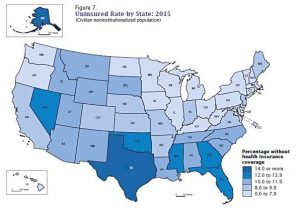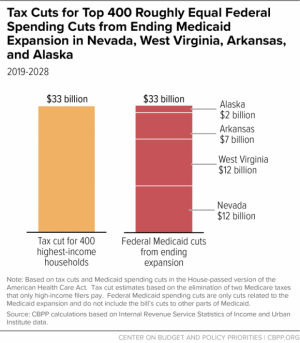Arkansas Medicaid Expansion: It Makes Cents
It’s been three weeks since the United States Supreme Court upheld the Affordable Care Act, and it seems at least one new question has popped up each of these 21 days. The biggest question for states to address comes from the law’s requirement that states’ expand their Medicaid programs in order to cover all adults living at or near the federal poverty line. Governors from coast-to-coast in both major political parties have openly questioned how much such an expansion will cost their states. Andy Alison, Department of Human Services Medicaid Director and a trained health economist, released a report this week that detailed exactly what Medicaid expansion means for Arkansas. Mr. Allison’s division oversees the Arkansas Medicaid program. So stunning was the news that the Washington Post’s resident policy wonk Ezra Klein called it “…one of the most detailed by a state so far, probing just about every way that Medicaid impacts state budgets.”
In short Mr. Allison’s report tells us that Arkansas would actually benefit financially over the next six years by expanding its Medicaid roles in compliance with federal law. States have an option to not participate in the program. Some lawmakers have said that they will never support Medicaid expansion, meaning that some 250,000 Arkansans would have the promise of health coverage quickly denied to them, and the state would lose $372 million between now and 2021.
Saving state revenue while at the same time adding people to the Medicaid roles seems counterintuitive to most people. What Mr. Allison does so well in his analysis is explain exactly how this is accomplished. As Mr. Klein notes in his review of the analysis:
But there are also $131.5 million in savings that comes from three sources. There would be a reduction in uncompensated care – the medical bills that don’t get paid – as more Arkansas residents gained coverage. State tax revenue would increase with the influx of federal dollars. The state also gets to transfer its medically needy population – those who spend nearly all of their income on medical bills to qualify for Medicaid – into the federally financed expansion.
Increased economic activity, which creates more state tax revenue, has long been something we have cited at AACF. Kathy Deck, an economist at the University of Arkansas Walton School Of Business, noted in a 2010 report that new federal Medicaid dollars turn over six times in the state’s economy. Put more simply, a Medicaid dollar paid to a physician will then go to an employee, then to a grocer, then to an employee, then to a gas station, etc., changing hands six different times.
We continue to support policies that cover more Arkansans while letting the federal government pay the vast majority of the bill. Now we know that, in addition to helping create a healthier population, this move would help stimulate the Arkansas economy and provide a needed boost to state tax revenue generated from the increased economic activity in our cities and towns due to the new federal dollars being spent on health care. Much of that new federal spending will be paid by residents in other states. If we do not enter into the new Medicaid program, tax dollars already paid by Arkansans will be spent to help insure Californians and New Yorkers – not Arkansans. AACF would much rather see those dollars spent right here at home





























